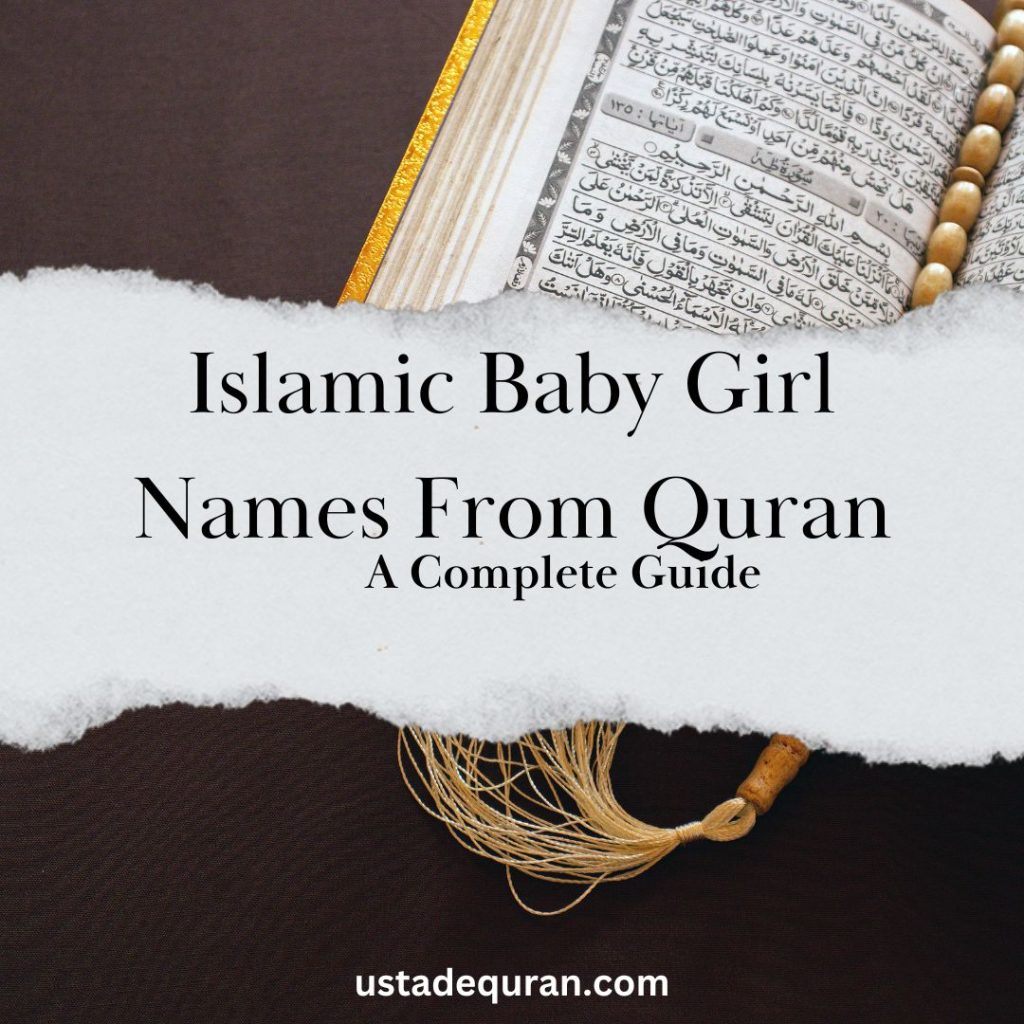Introduction:
Choosing a name for your baby girl is a significant decision that carries both cultural and religious significance. Islamic baby names, particularly those derived from the Quran, are meaningful choices that reflect the teachings and values of Islam. In this blog post, we’ll explore a selection of beautiful Islamic baby girl names directly sourced from the Quran.
Aisha (عائشة):
Aisha is a timeless and beloved name derived from the Arabic word for “alive.” Aisha bint Abu Bakr was the wife of Prophet Muhammad (peace be upon him) and one of the most prominent female figures in Islamic history. The name signifies vitality and strength.
Maryam (مريم):
Maryam, known as Mary in English, is a name of great honor. Maryam is the mother of Prophet Jesus (peace be upon him) and is revered for her piety and devotion. The name embodies qualities of purity and faith.
Fatimah (فاطمة):
Fatimah, the daughter of Prophet Muhammad (peace be upon him), holds a special place in Islamic tradition. The name means “one who abstains” and is associated with self-discipline and virtue.
Zahra (زهراء):
Zahra translates to “flower” or “radiant” in Arabic. It is a title often used to refer to Fatimah, symbolizing her spiritual beauty and luminosity.
Hannah (حنة):
Hannah, also known as Anne, is the mother of Maryam (peace be upon them both). The name represents compassion and grace, qualities that are highly valued in Islam.
Yusra (يسرى):
Yusra means “prosperity” and “ease.” It signifies the blessings and comfort that come with faith and submission to Allah.
Lubna (لبنى):
Lubna conveys the idea of a “palm tree.” Just as a palm tree provides sustenance and shade, this name signifies nurturing and protection.
Rahma (رحمة):
Rahma translates to “mercy.” Mercy is a fundamental attribute of Allah, and the name Rahma reflects the importance of showing compassion and kindness.
Safiya (صفية):
Safiya means “pure” or “chosen.” The name reflects the purity of heart that believers strive for in their relationship with Allah.
Nur (نور):
Nur simply means “light.” It symbolizes guidance and enlightenment, which are central concepts in Islamic spirituality.
Zainab (زينب):
Zainab means “adornment of her father” and is often associated with beauty and grace. This name can inspire a sense of confidence and self-assuredness in the individual.
Sara (سارة):
Sara, meaning “noble” or “princess,” can imbue a sense of dignity and leadership qualities in a person.
Rabia (رابعة):
Rabia means “fourth.” This name can symbolize uniqueness and individuality, encouraging the person to embrace their distinct qualities.
Amina (آمنة):
Amina translates to “trustworthy” or “faithful.” This name can inspire honesty, reliability, and a strong sense of integrity.
Layla (ليلى):
Layla means “night” and is often associated with beauty and mystery. This name might encourage a person to embrace their inner depth and cultivate a sense of wonder.
Inaya (عناية):
Inaya signifies “care” and “concern.” This name can foster a nurturing and compassionate nature, encouraging the individual to care for others.
Saida (سعيدة):
Saida means “happy” or “fortunate.” This name can contribute to a positive outlook on life and the ability to find joy in various circumstances.
Amina (أمينة):
Amina, similar to Amina mentioned earlier, conveys “trustworthiness” and “faithfulness.” This name can instill a sense of responsibility and dependability.
Izzah (عزة):
Izzah means “honour” or “glory.” This name can encourage the individual to strive for excellence and uphold their values with pride.
Hafsa (حفصة):
Hafsa means “gathering” or “collecting.” This name might reflect a person who values relationships and connections with others.
Impact on Personality:
While a name itself doesn’t determine a person’s personality, it can certainly influence their self-perception and the way others perceive them. Names often carry cultural and historical associations, which can shape an individual’s sense of identity. Additionally, the meanings behind names can inspire certain qualities or values in a person’s character. For example, if a person knows that their name signifies “mercy” or “light,” they might consciously or unconsciously strive to embody those attributes in their interactions and decisions.
Ultimately, a person’s personality is shaped by a combination of their upbringing, experiences, values, and personal choices. Names can serve as a positive influence by encouraging individuals to embrace certain virtues associated with their name’s meaning.
Conclusion:
Choosing an Islamic baby girl name from the Quran is a way to connect your child with the rich heritage and teachings of Islam. These names carry profound meanings that reflect qualities such as faith, virtue, compassion, and strength. Whether you choose a name based on a beloved figure from Islamic history or a name that embodies a cherished virtue, each name has a special significance that can guide and inspire your child throughout her life.

